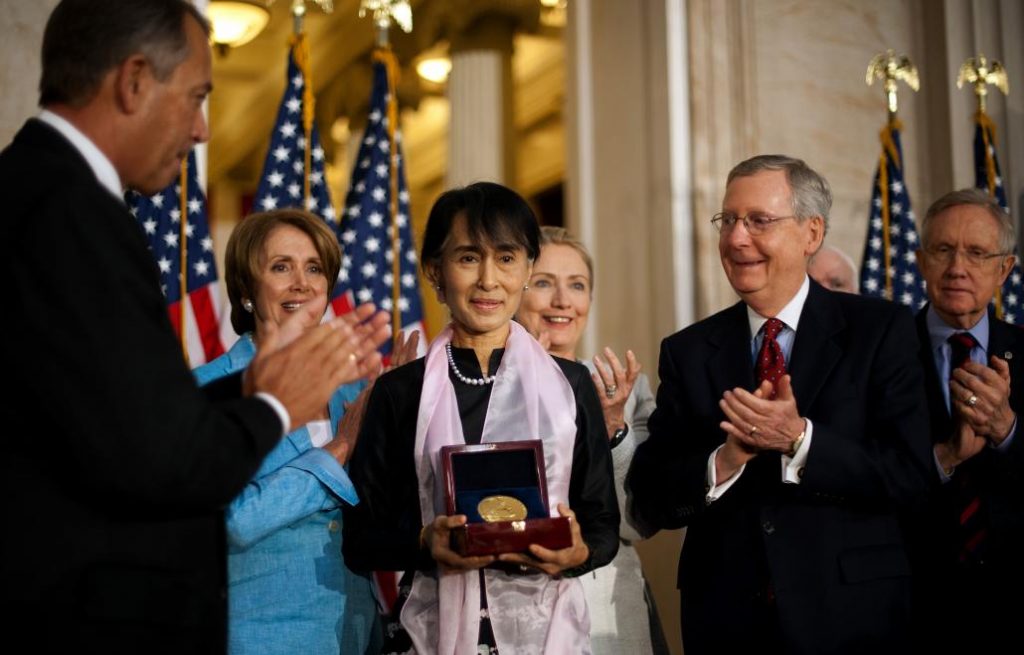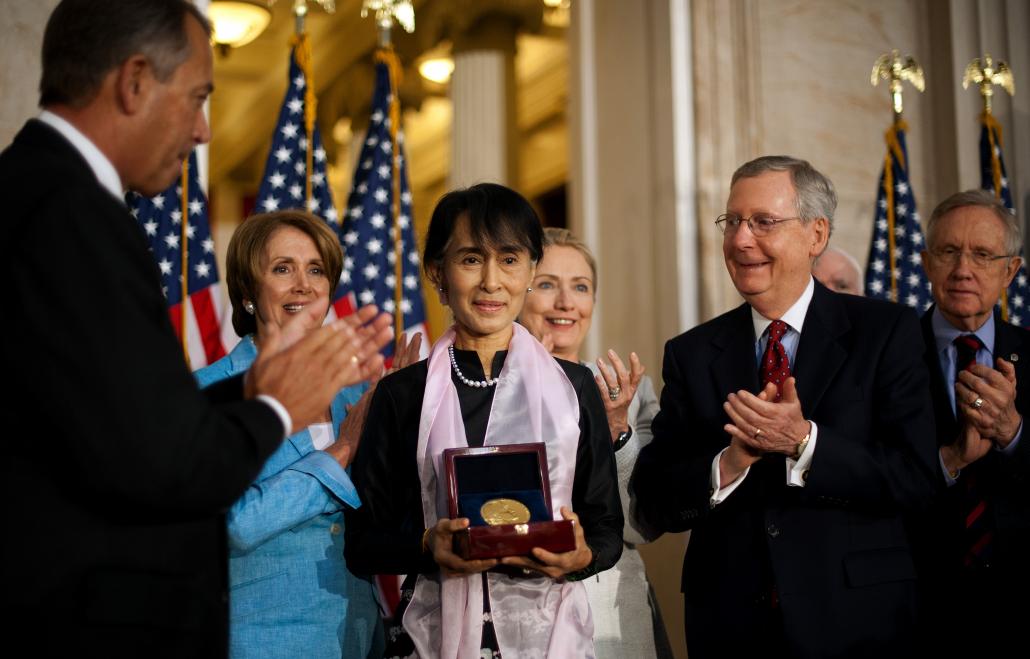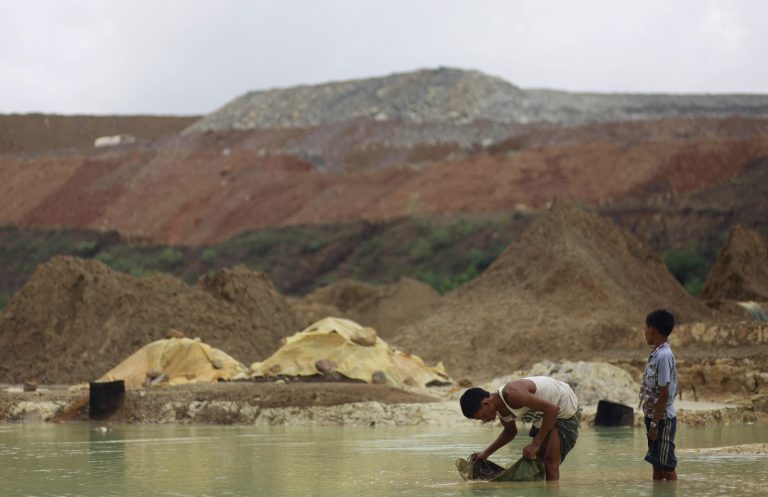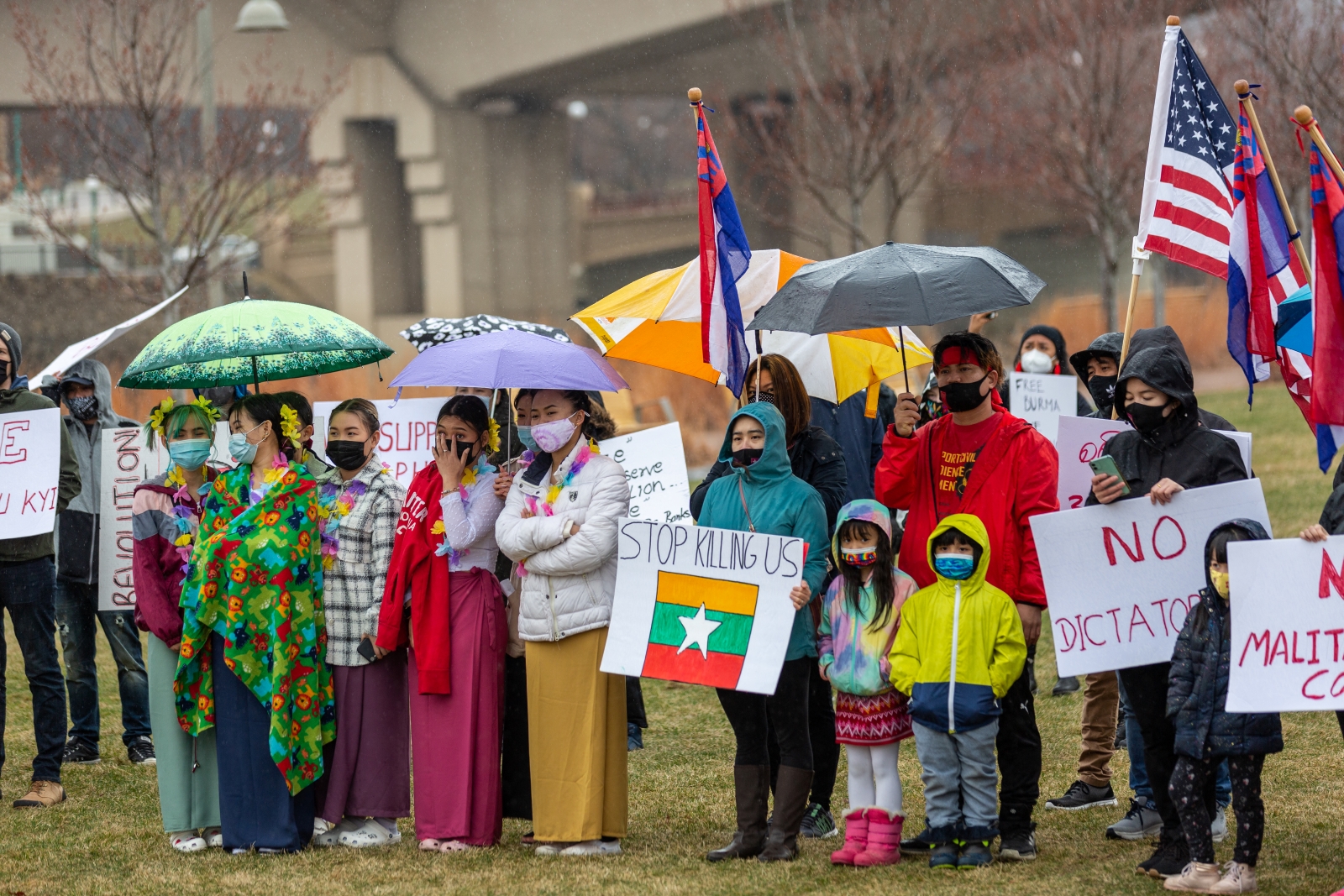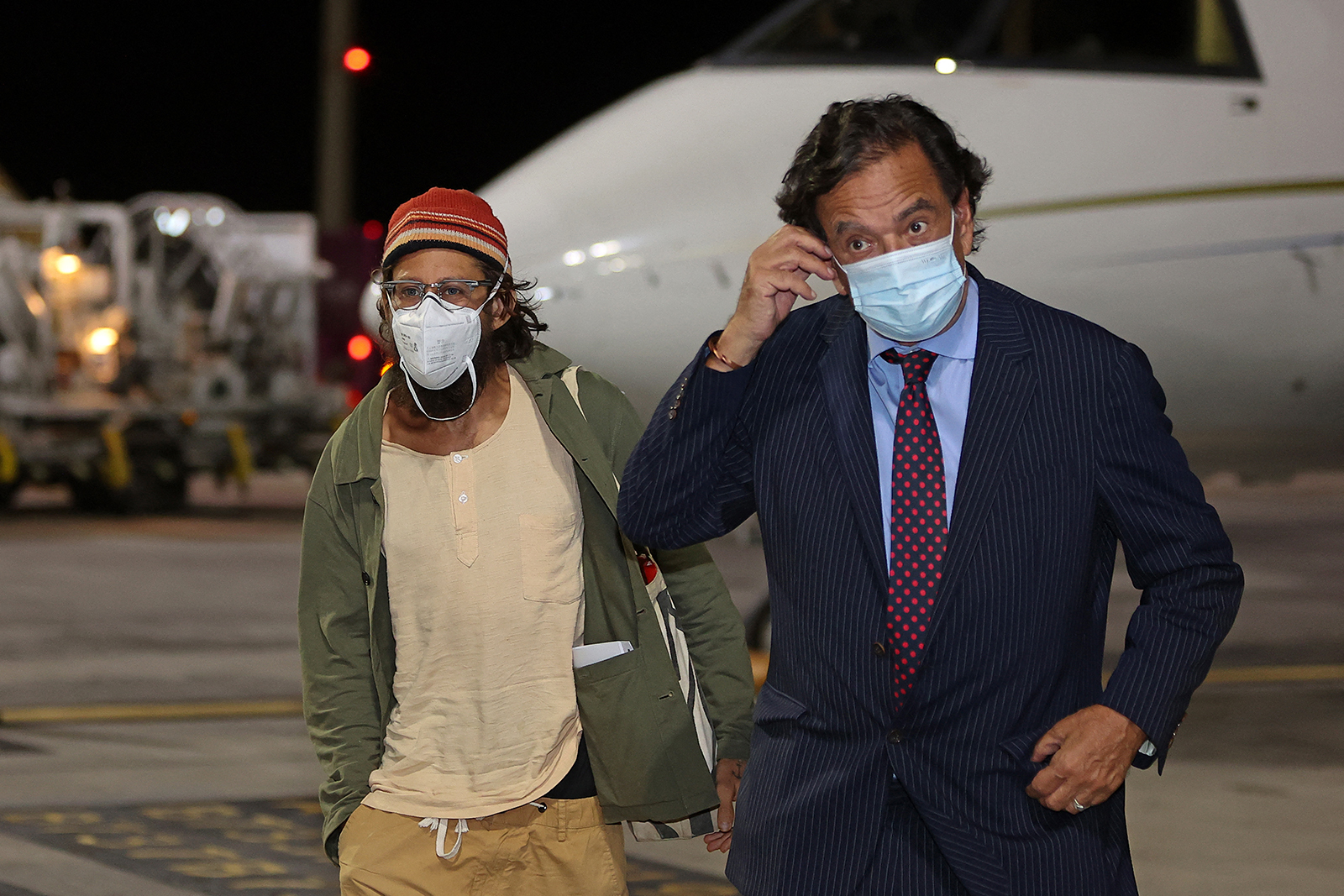typeof=
On the eve of Myanmar’s historic election, a look back at how activism and Western policy have intersected over the years – and what this nexus will mean moving forward.
In mid-August 2007, as the wheels of my Air Bagan flight from Yangon touched down at Bangkok, my take on the country I’d just left behind was clear. Myanmar was evidently in a sorry state. Resentment of the status quo was palpable, even if it was voiced cautiously; just weeks after my departure, this resentment boiled over into the largest show of public defiance against the regime in nearly 20 years.
My fascination with the country prompted me to dive headlong into the world of activism once I resumed my studies in Canada. Along with a group of dedicated moderators and activists around the world, I spearheaded a “Global Day of Action for Burma” in early October, which had its origins in a Facebook group I started called Support the Monks’ Protest in Burma that, at its peak, counted more than half a million members.
We saw results – or what we perceived to be results – almost immediately. In early November, Canada’s foreign minister Maxime Bernier announced that Ottawa would impose “the toughest sanctions in the world” against Myanmar. US President George W. Bush likewise imposed a new round of sanctions and an asset freeze on high-level figures affiliated with the junta.
US ambassador Derek Mitchell – then a fellow at the Washington, DC-based Center for International and Strategic Studies – told the Washington Post these measures would not have a massive, overnight impact, but that the Bush administration should be credited for keeping Myanmar “in the limelight,” adding that “it keeps up the momentum; it keeps the attention.”
Such measures, as Mr Mitchell alluded to, were more symbolic than anything else. The flow of cash from China, Thailand, and other Asian countries was affected little by Western sanctions. The 2007 uprising – dubbed the “Saffron Revolution” by the Western media – was crushed effectively, with decades-long sentences meted out to its orchestrators.
Support more independent journalism like this. Sign up to be a Frontier member.
Back then, Myanmar was an easy cause for Western governments to champion. Unlike other states with deplorable human rights records, Myanmar had no deep economic or strategic importance to the West (here’s looking at you, Saudi Arabia). In the United States, at least, support for the Burmese democracy movement, and its physical manifestation in Daw Aung San Suu Kyi, then still under house arrest, was bipartisan.
Realities today are, of course, different. In 2010, the government held an election that, although it parodied proper democratic practices, led to a civilianised government – albeit one dominated by ex-officers in civilian garb. The government quickly surpassed my (admittedly low) expectations: scores of political prisoners were released, the press was allowed to do its duty largely without interference from the authorities, and a peace process – flawed as it has proven to be – began in earnest.
I moved to Yangon in November 2012, days before US President Barack Obama’s much-vaunted visit to Myanmar, a country his predecessor’s government deemed an “outpost of tyranny” in 2005. The feeling on the street was palpably different from five years before – hope, it seemed, was the prevailing sentiment of the day.
The European Union lifted its sanctions in 2013, and the United States dropped most sanctions as well (although it maintains a targeted list of individuals and entities that are deemed to “undermine the reform process, engage in human rights abuses, contribute to ethnic conflict, or participate in military trade with North Korea”).
But three years on, the future we were promised of a democratic, rights-respecting Myanmar is still far off. That said, although Sunday’s election is invariably going to be flawed – the voter lists are a mess, and intimidation is rife – the idea that polls with even a sliver of legitimacy could be held was almost a laughably remote possibility in 2007. Expectations are tempered, however: the United States has shifted its rhetoric from calling for “free and fair elections” to hoping that they are “credible, transparent and inclusive”.
There are many reasons for concern. For starters, the 2008 Constitution – pushed through in a rigged plebiscite days after the worst natural disaster in Myanmar’s history – is still the unabridged law of the land. Daw Aung San Suu Kyi, the obvious people’s choice, is blocked from becoming president. The symbiosis between ultra-nationalist monks and the ruling, military-derived USDP has firmly sidelined Muslims and their voices in the political process.
More than a million Rohingyas denied citizenship, meanwhile, have been disenfranchised, and are subject to persecutory policies that a new, probably-not-coincidentally-timed legal analysis deems to be the “final stages of a genocidal process”. The number of political prisoners in Myanmar has swelled to nearly 100 in the run-up to the November 8 polls, and fighting across vast swathes of northern Myanmar has intensified in recent weeks, despite the ratification of a “nationwide ceasefire” by eight ethnic armed groups on October 15.
If Myanmar goes completely off the rails after the election – and some argue that it already has – how will Washington react, and how should it react? Myanmar is no longer a bipartisan cause celebre, and the lingering sanctions Washington maintains are not universally loved. Businesses claim they are unnecessarily complicated and put American interests at a disadvantage, although there is a case to be made that dropping them entirely would risk a race to the bottom if no actionable standards are in place to prevent abuses.
After being bogged down in wars in Afghanistan and Iraq for most of the 2000s, the Obama administration in 2012 announced a new military doctrine that would see Washington “pivot to Asia,” ostensibly to engage – and contain – growing Chinese economic and military clout. But the ‘Arab Spring’ of 2011 put a wrench in the spokes of Obama’s foreign policy; the rise of ISIS, a proxy war in Yemen between Saudi Arabia and Iran, and Vladimir Putin’s bellicose posturing in Eastern Europe and Syria means that a clean US shift away from the Middle East is not in the cards.
Hillary Clinton, who was Secretary of State under Obama from 2009 to 2013, wants to succeed him as the Democratic Party nominee for President next year. She points to Myanmar as an example of constructive engagement under her watch – positive spin she can use after being raked over the coals by her Republican opponents for perceived foreign policy failures, such as allegations that she mishandled an attack on the US consulate in Benghazi, Libya, that resulted in the death of the US ambassador in September 2012.
If Clinton is so keen to tout her successes in Myanmar, why has the US not done what the Europeans have, and lifted sanctions altogether, despite the attendant problems that remain with Myanmar’s fraught “democratic transition?” Unfortunately, the answer likely has less to do with morality than political calculation.
The opposition Republicans currently control both the Senate and the House of Representatives, the two chambers that make up the United States’ bicameral legislature. Although the Republicans are generally thought of as the party of big business (although it’s debatable how much really differentiates them from the Democrats on this count), dropping sanctions on Myanmar altogether as the United States moves towards choosing its next Commander-in Chief would give Clinton foreign policy accolades the Republicans would rather avoid.
The outcome of this week’s election, and what happens in the period that follows, are legitimately unknown quantities. What the military does between when the polls close and the formation of the next government should be the litmus tests for what drives US engagement. So, too, should be who is chosen as Myanmar’s next president. Regardless, the paradigmatic, black-and-white thinking that resulted in blanket sanctions before the reform process started should not come back, and it is unlikely that they will.
That does not mean, however, that Myanmar’s past five years have been an unqualified success story. Far from it. There is still a long way to go – and there are real risks that if Nay Pyi Taw feels threatened in the coming months, it will retreat into its shell by jailing dissidents and journalists. For this reason, it is crucial that America maintains a strong focus on whatever happens next, and divorces its Myanmar policy from Washington’s own politics of presidential succession.
This article first appeared in issue #19 of Frontier.


